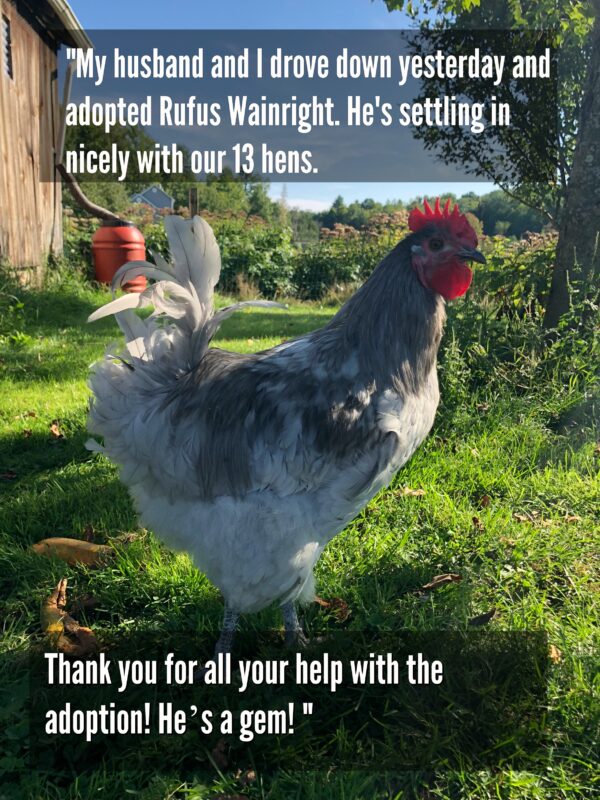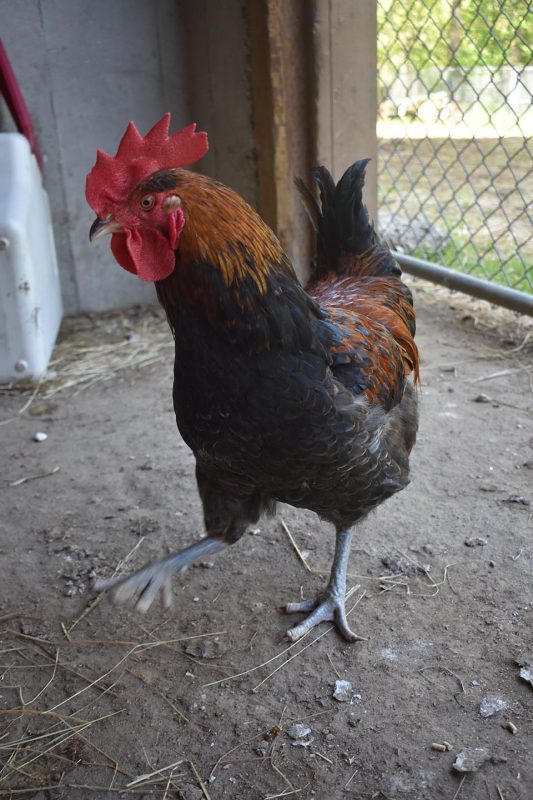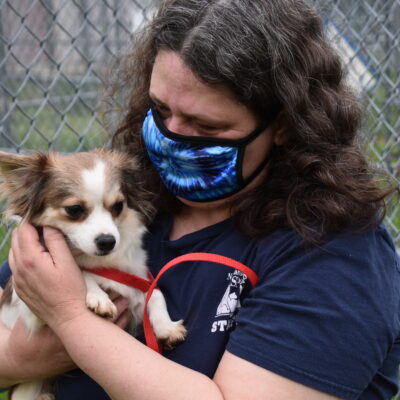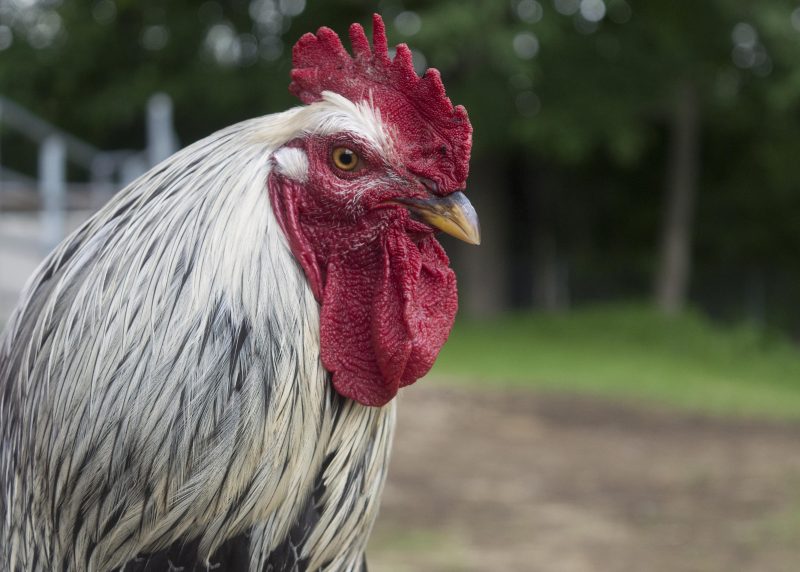
During the spring and summer months, our farm animal program is busy fielding calls from folks looking to surrender roosters. Sadly, roosters are often difficult to place in new homes and as a result, many of them remain in residence at our shelter for anywhere between several weeks to several years. This affects our ability to shelter other birds in need and limits the space we have available to accommodate new roosters. In this blog post, we’ll discuss a few ways folks can avoid ending up with unwanted roosters or responsibly care for the rooster they already have.
Yes, roosters are noisy!
We’ve all seen those movies- the idyllic farm setting with peaceful farm animals, roosters crowing at dawn to announce the new day. Sounds lovely, right? The reality is that roosters don’t just crow at dawn- they crow at varied times throughout the day for different reasons! Most roosters have a strong instinct to protect their flock and can be quite vocal!
If you’re considering adding (or keeping) a rooster, it is important to check with your town regarding zoning laws. Many residential areas do not permit chickens or roosters due to the noise and disturbance to neighbors.
Roosters have a strong instinct to protect their flock
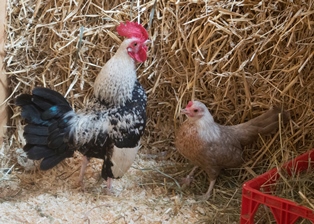
An adult rooster serves as the guardian of his flock. It is very important to him to be in charge of his hens and territory! This can often result in aggressive behavior directed at caretakers. While socializing your rooster early will help prevent him from seeing you as a threat, roosters are subject to hormones and the instinct to protect. They may chase you away from the flock, peck at your ankles and even use their spurs- although it can be a little alarming, this is natural!
It is possible to curb your rooster’s behavior in the event that he becomes difficult to manage. Our farm program can provide you with different troubleshooting techniques to try before considering re-homing or surrendering your rooster.
If you’re looking to expand your flock, adopt!
Every spring, feed and hardware stores in our area prepare for “chick season”. Many folks purchase chicks from these distributers to start or add to their existing flock. While chicks are adorable and fun- it is very difficult to determine the males from the females until they are several weeks to several months old. Most hatcheries sex their chicks before shipping, but there is anywhere from a 10-40% chance these chicks have been incorrectly sexed, which means you may end up with a rooster or two. Sadly, when chicks are sexed at the hatchery, the males may be disposed of in ways that many of us would find unpleasant- all the more reason to consider adopting adult chickens from rescue organizations or farm animal sanctuaries!
When you adopt from a rescue organization, you can rest assured that your hens and/or rooster are healthy and have been well cared for. Not only will you provide a rescue animal with a loving home, you will free up space at a shelter for another animal in need! What’s not to love about that?
Tips for Maintaining a Healthy, Happy Rooster:
- Socialize your rooster! In order to enjoy interacting with your flock, it is important to spend time with your rooster to teach him that you are not a threat. Many roosters have very individual personalities and enjoy attention from caretakers! If your rooster really likes you, he just might dance for you!
- Make sure your rooster and his hens have plenty of space of their own. Crowding a rooster may make him feel threatened and cause unwanted displays of aggression.
- Having multiple hens for your rooster will help keep him busy and happy.
- Always supervise your rooster when children and other pets are around. This is especially important if you are unsure how your rooster will react to new people, animals and things.
Tips for Avoiding Surrendering or Re-homing Roosters:
- Practice good flock maintenance! If you already have a rooster, the best way to prevent having another one is to collect eggs from your hens every day. Collecting freshly laid eggs will prevent your hens from hatching chicks by surprise! Preventing your hens from hatching chicks is a guarantee you will not end up with roosters.
- If you decide to purchase chicks instead of adopting hens, be prepared for the chance that you might end up with a rooster. If you don’t want to take that chance- adopt through your local farm animal shelter or sanctuary.
- Be sure to do your research and prepare for the arrival of a rooster, should you choose to introduce one to your flock. Being prepared will not only prevent your rooster from ending up homeless in the future, but it will also help you enjoy your rooster!
A rooster can be a wonderful addition to any flock. He will protect your hens and alert you to any danger from predators. The NHSPCA typically has between 2 and 6 roosters in residence throughout the year. If you would like to welcome a rooster into your home, feel free to reach out to our Farm Program to find the right match for you and your family!

